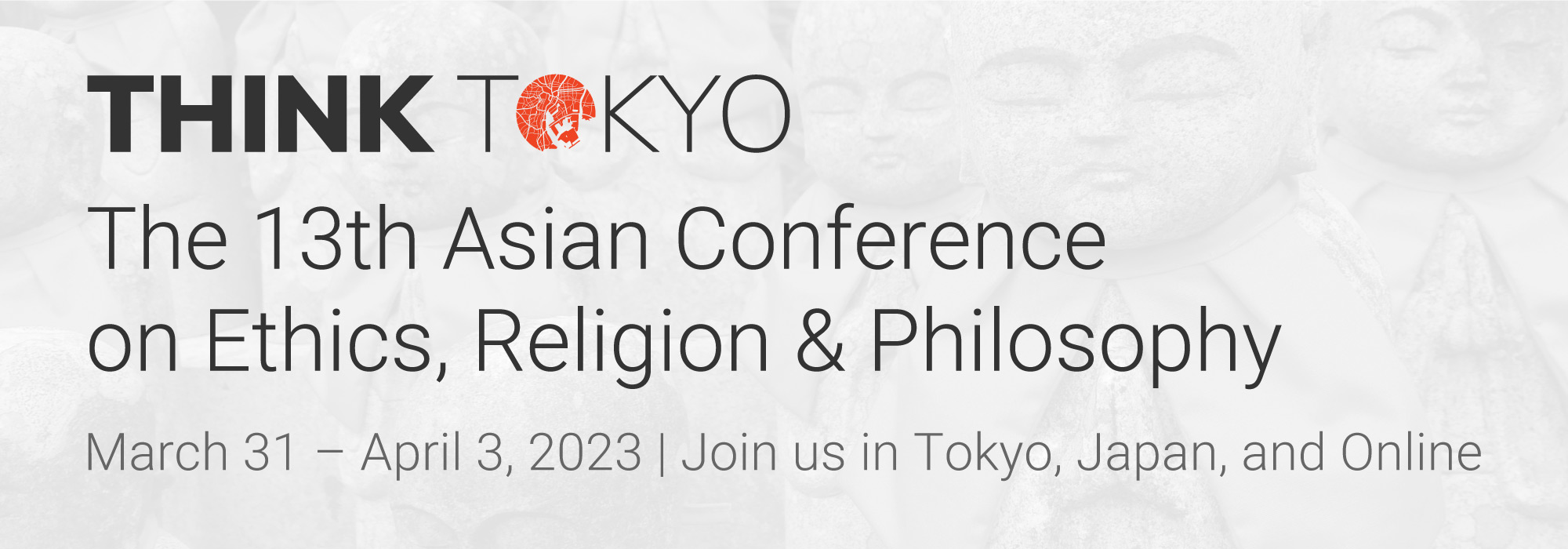Alistair Ping of QUT Graduate School of Business, Australia, has been announced as a Spotlight Speaker at The 12th Asian Conference on Ethics, Religion & Philosophy (ACERP2022), with his presentation titled “Building a Moral Culture From the Ground Up – Why Fairness, Justice and Reciprocity Are Key”.
Presentations are given Spotlight status when they are decided by the Organising Committee to have wide appeal and are of particular interest to academics within the field of ethics, religion and philosophy.
The 12th Asian Conference on Ethics, Religion & Philosophy (ACERP2022) will be held alongside The 12th Asian Conference on Psychology & the Behavioral Sciences (ACP2022).
The presentation will also be available for IAFOR Members to view online. To find out more, please visit the IAFOR Membership page.
Abstract
Building a Moral Culture From the Ground Up – Why Fairness, Justice and Reciprocity Are Key
Rationalist models of ethical decision making (Jones, 1991) assume that higher order conscious reasoning dominates the ethical decision-making process and that bad people do bad things due to either greed, bad character or poor values. Interventions following unethical crises commonly follow on from this assumption and include; new deterrents; efforts to weed out the ‘bad apples’; and retraining in Values. However, research shows that people with ‘a good will’ create bad outcomes in business on a seemingly regular basis and that efforts at ethics education make little or no difference (Desplaces et al., 2007; Jewe, 2008). This paper builds on Ping’s (2017) inter-disciplinary causal factor model on ‘Why Good People Do Bad Things’ which indicated that individual perceptions of justice regarding the subjective assessment of unfolding reality have a cumulative effect on the behaviour of individuals. When subjects perceived reality to be unfair or unjust they were more inclined to use moral neutralisations to justify acts that would objectively be considered to be in violation of their aspirational moral values. This perception and the invoked justifications then blinded them to the moral aspect of the issue at hand and allowed them to create unethical outcomes that they perceived to be just. Moral Intention Theory proposes that the key to creating a moral culture is to teach people how to set moral intention based on fairness, justice and reciprocity - and then to protect it from the flawed justifications that neutralise the very morals that good people aspire to live by.
Speaker Profile
Alistair Ping
QUT Graduate School of Business, Australia
 Alistair Ping is an Adjunct Professor at QUT Graduate School of Business and is also a Colin Brain Governance Fellow. He is a recognised expert in Ethics and Governance having over 25 years experience in the field. Alistair regularly presents at conferences, including the 2019 Australian Public Sector Anti-Corruption Conference and the 2016 ACERP Conference. He has also worked directly with corporations, not for profit and government agencies in Australia, the United States, the United Kingdom and Africa – including the Prince of Wales Business Leaders Forum.
Alistair Ping is an Adjunct Professor at QUT Graduate School of Business and is also a Colin Brain Governance Fellow. He is a recognised expert in Ethics and Governance having over 25 years experience in the field. Alistair regularly presents at conferences, including the 2019 Australian Public Sector Anti-Corruption Conference and the 2016 ACERP Conference. He has also worked directly with corporations, not for profit and government agencies in Australia, the United States, the United Kingdom and Africa – including the Prince of Wales Business Leaders Forum.
Alistair is also an Australian-American Fulbright Scholar – his study considered Corporate Social Responsibility trends in the United States and the report ‘Engage’ was submitted to the Australian Senate Inquiry into Corporate Social Responsibility in Australia. Following on from this study Alistair completed a PhD at QUT in Applied Ethics which investigated ‘Why Good People Do Bad Things’ – a key result of this interdisciplinary research was the development of a causal factor model which considers behavioural and contextual cues that can lead to unethical outcomes. Insights from this research were submitted to the Victorian ‘Integrity and Oversight Committee’. Alistair is also the author of two business books on Ethics and Corporate Social Responsibility; six personal development books; and numerous magazine and newspaper articles.

